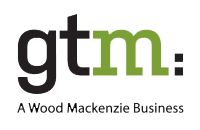If a sales rep is offering you free solar panels, we recommend that you immediately disengage with the company and review our guide on how to choose a solar company. As the old adage goes “there ain’t no such thing as a free lunch” and the same concept should be followed with solar panels.

With that being said, solar companies will often market certain zero money down financing products as free solar panels and you should be sure to understand the actual terms of these arrangements.
In a few states, there actually are free solar panels for low income families that are offered by non-profits or state-funded agencies. This guide includes an overview of these programs and a program list by state to confirm solar company sales pitches.
[su_list icon=”icon: angle-double-right” icon_color=”#4dc7ec” class=”table-of-cont”]
- Free Solar Panels: Whats the Catch?
- Are Free Solar Panels a Good Idea?
- Solar Panels for Low Income Families
- By State Resources on Low Income Solar Panels
[/su_list]
[su_button url=”http://www.worldsort.com/go/C061D5061A2607FD” target=”blank” style=”flat” size=”5″ center=”yes” radius=”0″ class=”view-amz”]Get 3 Solar Quotes Now[/su_button]
Free Solar Panels: Whats the Catch?
At OhmHome, we have heard reports that some solar companies will tell consumers they can get free solar panels from the government or that there are government incentives that are ending soon and they should act fast. Most of these companies that offer “free solar panels” are actually referring to a soar lease or power purchase agreement, an arrangement in which a solar company installs and owns solar panels on a house in exchange for an agreement to purchase power for a 20 year period from the solar company. The CEO of the largest U.S. residential solar company, Tesla/SolarCity even positioned their product as “no cost” in a Fox interview.
If purchased correctly, these arrangements allow the homeowner to realize immediate savings on their energy bill, but they are locked in to a 20 year commitment. These are common and currently represent approximately 50% of the market. They could also be referring to a zero money down solar loan, which have been become more popular in recent years.
Are “Free Solar Panels” a Good Idea?
A power purchase agreement or solar lease can be a good idea for some homeowners, although it is very dependent on a homeowners financial situation and preferences. A lease can be a good option for a homeowner that does not want to worry about any maintenance of the panels or can’t take advantage of the federal tax credit incentives. For more information, refer to our lease our buy guide. Whether you lease or purchase your solar system, you should get quotes from multiple providers for optimal pricing.
Solar Panels for Low Income Families
In several developed solar states, the government or non-profits have solar programs for low income families, some of which are low cost or free. The most popular solar program for low income families is GRID Alternatives, which provides low-to-no cost solar systems to families that quality as low income.
GRID Alternatives uses a barnraising model that gives volunteers and job trainees hands-on experience that they can use to get jobs in the solar industry. They estimate that there are 20 million single family homes in the U.S. that qualify for low income solar programs. In California as an example, the company manages the Single-family Affordable Solar Homes Program, which is funded by the California Public Utilities Commission through utility rate-payers.
There are several other programs similar to GRID Alternatives and more information can be found at lowincomesolar.org. One of the more successful programs is the Rural Renewable Energy Alliance.
By State Resources on Low Income Solar Panels
The National Renewable Energy Laboratory has compiled a helpful resource on low income solar panel programs, which we have summarized:
- State and Federal Low Income Programs
- California – The California Solar Initiative and the New Solar Homes Partnership can help affordable housing customers Go Solar through partial or full funding for solar energy and solar thermal systems
- Massachusetts – The Massachusetts Green Communities Act of 2008 allowed for solar systems from low income families to receive a higher ratio of SREC (renewable energy credits).
- Federal – In July 2016, the federal government announced the Clean Energy Savings For All Initiative, which is targeting 1 gigawatt of solar installations for low income families by 2020.
- Community Solar – Several states have similar programs to support low income families with community solar: California, Colorado, New York, Oregon
- Misc. Financing Sources – Check these resources to see if you qualify for any of these financing sources.
[su_button url=”http://www.worldsort.com/go/C061D5061A2607FD” target=”blank” style=”flat” size=”5″ center=”yes” radius=”0″ class=”view-amz”]Get 3 Solar Quotes Now[/su_button]
[su_note note_color=”#d8f4fd” text_color=”#ffffff” radius=”3″ class=””]
OhmHome 2018 Solar Guides:
- Lease vs. Buy Solar
- Best Solar Panel Brands
- How to Choose a Solar Company
- Do Solar Panels Increase Home Values?
[/su_note]




